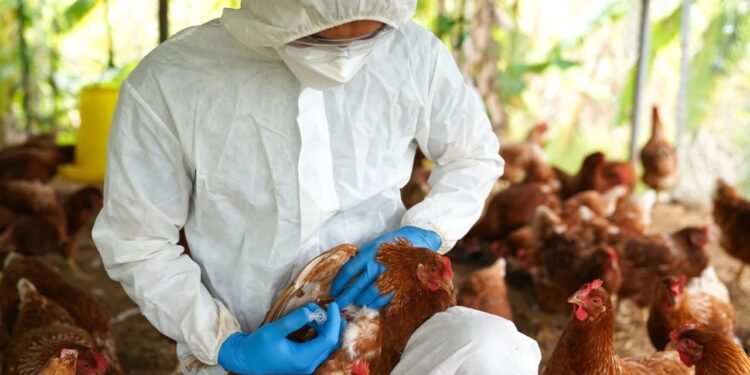Avian influenza, also known as bird flu, is a viral infection that primarily affects birds but can sometimes infect humans and other animals. Understanding its causes, symptoms, and preventive measures is crucial for both public health and poultry industry safety. In this guide, we will explore the key aspects of avian influenza and provide answers to some frequently asked questions.
Table of Contents
What is the cause of avian influenza?
Avian influenza is caused by influenza type A viruses, which occur naturally among wild aquatic birds and can infect domestic poultry and other bird and animal species. These viruses are highly contagious among birds and can spread through direct contact with infected birds, their saliva, nasal secretions, feces, and contaminated surfaces.
Can humans catch avian flu?
Yes, humans can catch avian influenza, but it is relatively rare. Human infections primarily occur through direct or close contact with infected birds or contaminated environments. While the risk of human-to-human transmission is low, certain strains like H5N1 and H7N9 have caused severe illness in humans.
What are the symptoms of avian influenza in poultry?
The symptoms of avian influenza in poultry vary depending on the virus strain. Still, they can include sudden death, respiratory distress, decreased egg production, and swelling of the head, neck, and eyes. Infected birds may also exhibit ruffled feathers, a drop in food and water intake, and diarrhea.
Are eggs safe to eat during a bird flu outbreak?
Yes, eggs are safe to eat during a bird flu outbreak if they are properly cooked. Cooking eggs until both the white and yolk are firm kills the virus, ensuring they are safe for consumption. Practicing good hygiene when handling eggs is also important to prevent contamination.
Can bird flu be cured?
There is no cure for avian influenza in birds, but the infection can be managed with supportive care and preventive measures. In humans, antiviral medications may help reduce the severity of the illness if administered early. Vaccines are also available for certain strains of avian influenza.
Can we eat chicken during a bird flu outbreak?
Yes, it is safe to eat chicken during a bird flu outbreak if it is properly cooked. Cooking poultry to an internal temperature of 165°F (74°C) kills the avian influenza virus. As with eggs, practicing good hygiene when handling and preparing poultry is essential to prevent contamination.
Frequently Asked Questions (FAQ) About Avian Influenza
What is the cause of avian influenza?
Avian influenza is caused by influenza type A viruses found in wild aquatic birds. These viruses can infect domestic poultry and other bird and animal species through direct contact and contaminated surfaces.
Can humans catch avian flu?
Yes, though it’s rare, humans can catch avian influenza from infected birds or environments. Close contact with infected birds is usually necessary for transmission.
What are the symptoms of avian influenza in poultry?
Symptoms in poultry include sudden death, respiratory issues, decreased egg production, and swelling of the head. Birds may also show signs like ruffled feathers and diarrhea.
Are eggs safe to eat during a bird flu outbreak?
Yes, properly cooked eggs are safe to eat during a bird flu outbreak. Ensuring eggs are cooked until both the white and yolk are firm eliminates the virus.
Can bird flu be cured?
There is no cure for bird flu in birds, but supportive care can help manage the infection. In humans, early use of antiviral medications can reduce illness severity.
Can we eat chicken during a bird flu outbreak?
Yes, chicken is safe to eat if cooked properly during a bird flu outbreak. Cooking poultry to an internal temperature of 165°F (74°C) ensures it’s virus-free.
Understanding avian influenza and taking appropriate preventive measures can help protect both human health and the poultry industry. Regularly monitoring and reporting outbreaks, practicing biosecurity measures, and maintaining proper hygiene are critical steps in controlling the spread of this disease.
For more interesting articles, keep visiting our website Healthke.


 Home
Home









